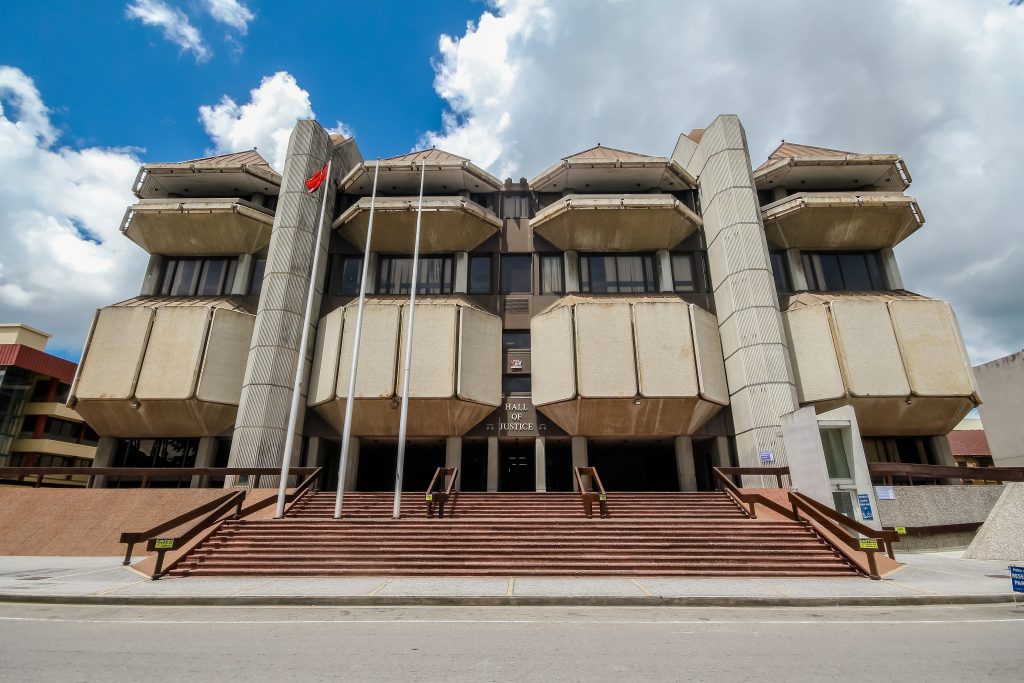Judge sends back cop's injury claim to NIB

UPDATE
A HIGH COURT judge has sent back to the National Insurance Board (NIB) a claim by a police officer for injury benefits for 2013 and 2014.
The NIB filed a judicial review claim against the National Insurance Appeals Tribunal (NIAT) after it ordered the board to pay Ancil Corrie compensation for his injury leave.
In his decision, Justice Ricky Rahim declared the decision of the appeals tribunal was illegal and also ordered that the NIB must reconsider Corrie’s claim for injury benefits.
The NIAT’s decision was given in March 2017, but the NIB argued that it denied Corrie’s claim because he failed to submit it within the statutory time limit. The NIB Act stipulates that submission of claims for injury benefit must be made 14 days from the date the applicant is rendered incapable of work because of the accident. There is also a provision for a person to make a claim within 12 months if he can show there was a good reason for the delay in submitting the claim.
In its decision, the NIAT held that Corrie’s application did not begin to run until the nature of his injury leave had been classified by the Commissioner of Police, so it fell within the limit.
Corrie was injured on August 5, 2013, and made his application to the NIB on July 28, 2014, almost 11 months later. Along with his application he sent a letter from the police service saying the application was late because of the lateness in classifying the type of leave he was given – sick leave or injury leave.
Corrie was also asked to submit additional information to the NIB within 30 days. He returned two months later, on October 9, 2014, with another application and was again asked for additional information.
In all, Corrie made some 19 applications for benefits for leave for 2013-2014.
In its defence, the appeals tribunal held that the time did not begin to run on Corrie’s application until the leave had been classified as injury leave.
In his ruling, Rahim said allowing Corrie’s appeal served to extend the stipulated time for the filing of claims beyond 12 months.
“This is also not contemplated by the statute and falls outside of the powers conferred on the defendant,” the judge said.
He also agreed that the tribunal should not have interpreted the definition of “the date upon which the contingency arose,” as defined in the act, and by doing do was giving itself a power it did not have to interpret the statute. This can only be done by a court.
Rahim said while he was not insensitive to the fact that the appeals tribunal may have been correct in deciding that Corrie’s application could not be determined until his leave was classified, that did not give it the power to “step out of its remit and jurisdiction” and provide a statutory interpretation on the regulations set out in the act.
“On this basis alone this court would set aside the decision of the appeals tribunal as the error is fundamental, but there is one other issue to treat with,” he said.
In determining whether Corrie had submitted a good reason for the delay in his application, Rahim said there was no evidence it was considered by the NIB. But, he said, the board was under a duty to specifically consider whether Corrie showed good cause for the delay.
“He was therefore on the evidence deprived of the benefit of such a consideration which is manifestly unfair.”
For this reason the policeman’s claim was sent back for consideration.
Rahim also said because the NIB’s claim dealt with matters which contained a very high public-interest element and because both the board and the tribunal were subject to overall control by the State, he ordered that they each bear their own costs.
Attorneys Bryan McCutcheon and Tonya Rowley represented the NIB and Josephina Baptiste-Mohammed and Svetlana Dass appeared for the tribunal.
In November, last year, another High Court judge urged the various divisions within the protective services to revisit their procedures for leave classification so that employees can submit their claims to the NIB within the stipulated period of a year. Justice Ronnie Boodoosingh made the call after he ruled that two decisions of the tribunal were invalid as the body did not have the legislative power under the National Insurance Act to allow the appeals of a coast guardsman and a fireman.
ORIGINAL STORY:
A HIGH COURT judge has sent back to the National Insurance Board (NIB) a claim by a police officer for injury benefits for 2013 and 2014.
The NIB filed a judicial review claim against the National Insurance Appeals Tribunal (NIAT) after it ordered the board to pay Ancil Corrie compensation for his injury leave.
In his decision, Justice Ricky Rahim declared the decision of the appeals tribunal illegal. quashed it and ordered the NIB to reconsider Corrie’s claim for injury benefits.
Attorneys Bryan McCutcheon and Tonya Rowley represented the NIB andJosephina Baptiste-Mohammed and Svetlana Dass appeared for the tribunal.


Comments
"Judge sends back cop’s injury claim to NIB"